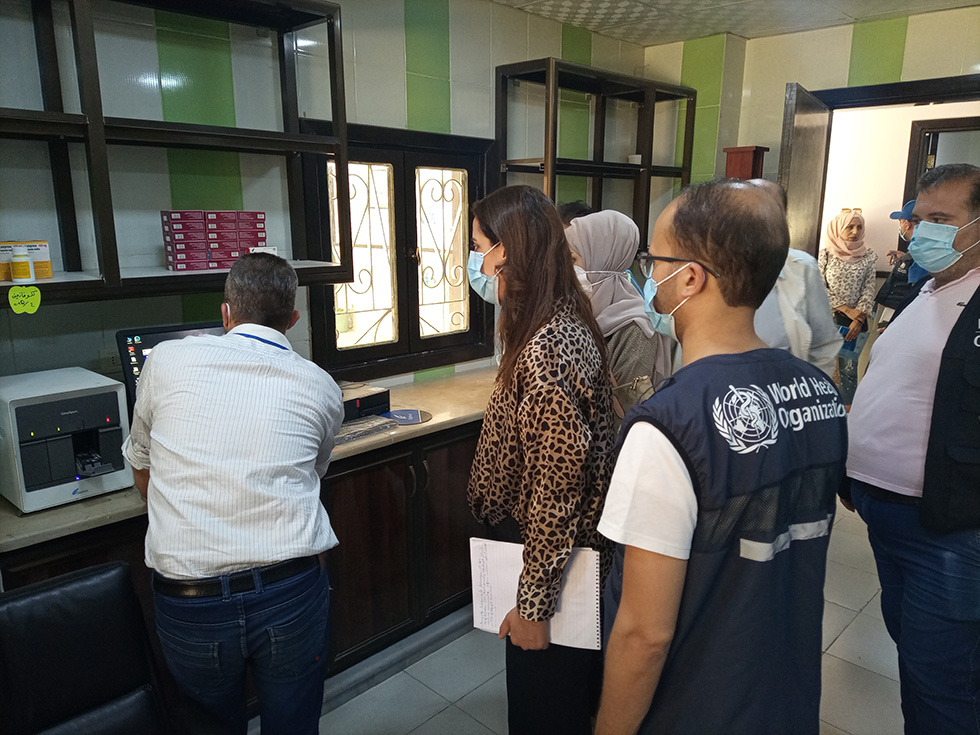
4 October 2023, Damascus, Syria - The World Health Organization (WHO) recently conducted a regional Green Light Committee (rGLC) mission to Syria, focusing on strengthening Syria's National Tuberculosis Programme (NTP). The mission involved updating the national multi-drug-resistant guidelines and conducting training sessions on new WHO-recommended treatments for both drug-susceptible Tuberculosis (DS-TB) and drug-resistant Tuberculosis (DR-TB).
The Syrian conflict has heavily disrupted the health system, leaving thousands of people unable to access TB prevention, diagnosis, and treatment services. Moreover, millions of internally displaced people (IDPs) live in poor conditions, overcrowded and in unsanitary camps and settlements creating conditions that increase the risk of transmission and exacerbate the disease. WHO is collaborating with the Syrian Ministry of Health (MoH) and other partners to strengthen the NTP and work towards eliminating the disease in the country. The introduction of new diagnostics and treatments, particularly at the subnational level, is a key part of these efforts.
Dr. Iman Shankiti, WHO Representative a.i. in Syria, stressed the need for a comprehensive approach: "Addressing tuberculosis in Syria requires not just advanced diagnostics and treatments, but a shared commitment to improving health services accessibility across all areas of the country – particularly for those most vulnerable and in need."
Both the MOH and WHO, together with other health partners, are committed to implementing the guidelines and recommendations developed during the rGLC mission. The introduction of new diagnostics and treatments, such as all-oral shorter regimens, is expected to improve patient adherence and health outcomes.
Dr. Kenza Bennani, Medical Officer of the WHO Regional TB Program, affirmed, "The novel diagnostics and treatments provide an opportunity to enhance outcomes for TB and drug resistant TB patients in Syria. Ensuring comprehensive access to the novel advanced tools and treatments with sustainable resources and support will lead to further progress in coverage of services for TB along the full-service cascade, including prevention, diagnosis and treatment."


